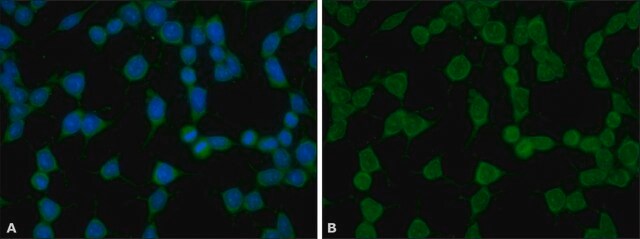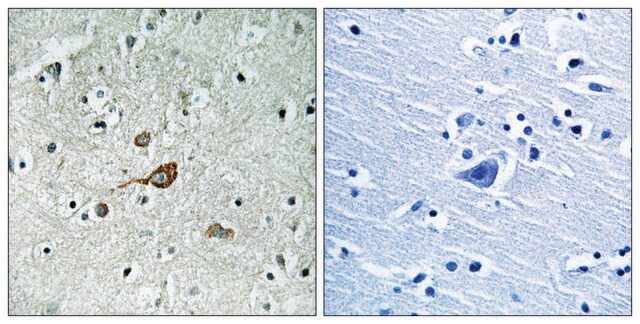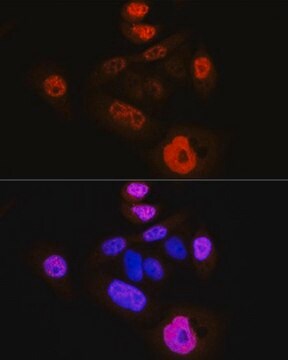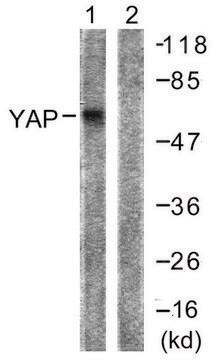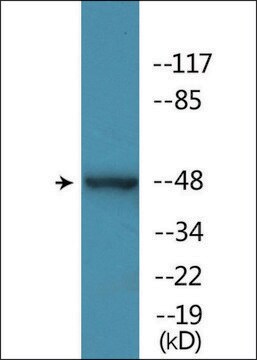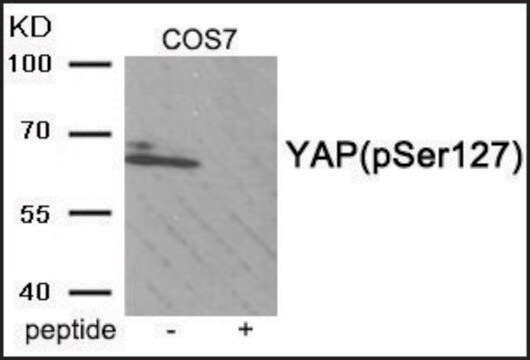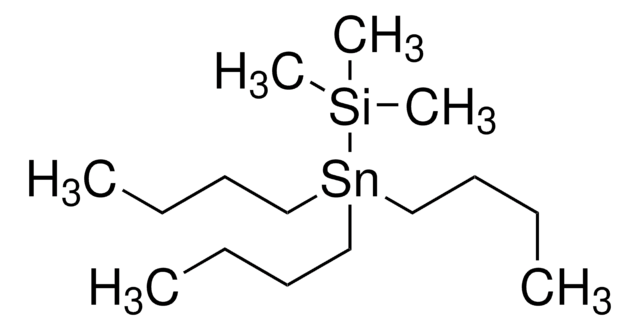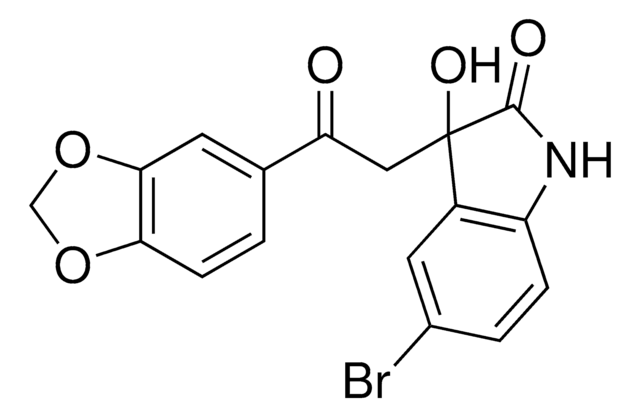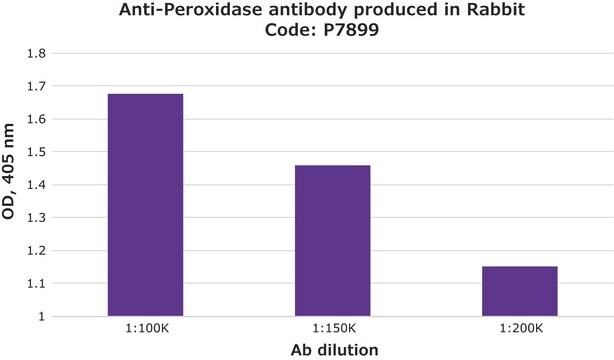推荐产品
生物源
mouse
共軛
unconjugated
抗體表格
purified from hybridoma cell culture
抗體產品種類
primary antibodies
無性繁殖
PYP-76, monoclonal
形狀
buffered aqueous solution
分子量
antigen ~65 kDa
物種活性
human
技術
indirect ELISA: suitable
indirect immunofluorescence: suitable
western blot: 0.5-1 μg/mL using total cell extract of HEK-293T cells co-transfected with wt YAP and a constitutively active mutant of c-Abl (Δ1-81)
同型
IgM
UniProt登錄號
運輸包裝
dry ice
儲存溫度
−20°C
目標翻譯後修改
phosphorylation (pTyr357)
基因資訊
human ... YAP1(10413)
mouse ... Yap1(22601)
一般說明
Monoclonal Anti-phospho-YAP1 (pTyr357) (mouse IgM isotype) is derived from the hybridoma PYP-76 produced by the fusion of mouse myeloma cells and splenocytes from BALB/c mice immunized with a synthetic phosphopeptide corresponding to a fragment containing (pTyr357) of human YAP1 conjugated to KLH. Yes-associated protein 1 (YAP1) is a modular adapter protein with multiple protein interaction domains that was originally identified based on its interaction with the Src-family tyrosine kinase c-Yes. YAP1 contains a proline-rich amino terminus, a WW domain, a coiled-coil and a PDZ-binding motif at the extreme C-terminus.
應用
Anti-phospho-YAP1 (pTyr357) antibody, Mouse monoclonal has been used in
- immunoblotting
- enzyme linked immunosorbent assay (ELISA)
- immunofluorescence
生化/生理作用
YAP1 has been shown to stabilize p73 by preventing Itch-mediated ubiquitination of p73.
YAP1 is a WW domain containing protein that is known to associate with a wide range of transcription factors and functions as a transcriptional co-activator. It may also regulate p73 gene function in response to DNA damage. Alterations in YAP1 have been associated with tumor development
外觀
0.01M 磷酸缓冲盐溶液,pH 7.4,含 15mM 叠氮化钠。
免責聲明
Unless otherwise stated in our catalog or other company documentation accompanying the product(s), our products are intended for research use only and are not to be used for any other purpose, which includes but is not limited to, unauthorized commercial uses, in vitro diagnostic uses, ex vivo or in vivo therapeutic uses or any type of consumption or application to humans or animals.
未找到合适的产品?
试试我们的产品选型工具.
儲存類別代碼
10 - Combustible liquids
閃點(°F)
Not applicable
閃點(°C)
Not applicable
個人防護裝備
Eyeshields, Gloves, multi-purpose combination respirator cartridge (US)
Conjugated Bile Acids Promote Invasive Growth of Esophageal Adenocarcinoma Cells and Cancer Stem Cell Expansion via Sphingosine 1-Phosphate Receptor 2-Mediated Yes-Associated Protein Activation
Liu R, et al.
The American Journal of Pathology, 188(9), 2042-2058 (2018)
Ting-Fang Lee et al.
Oncotarget, 8(52), 89539-89551 (2017-11-23)
Epidermal growth factor receptor (EGFR) mutations are found in lung adenocarcinomas leading to tumor cells proliferation and survival. EGFR tyrosine kinase inhibitors (TKIs) that block EGFR activity are effective therapeutics for EGFR-mutant lung adenocarcinoma patients, but TKI-resistance inevitably occurs. The
The Yes-associated protein 1 stabilizes p73 by preventing Itch-mediated ubiquitination of p73
Levy D, et al.
Cell Death and Differentiation, 14(4), 743-743 (2007)
Akihiko Komuro et al.
The Journal of biological chemistry, 278(35), 33334-33341 (2003-06-17)
The ErbB-4 receptor protein-tyrosine kinase is proteolytically processed by membrane proteases in response to the ligand or 12-O-tetradecanoylphorbol-13-acetate stimulation resulting in the cytoplasmic fragment translocating to the cell nucleus. The WW domain-containing co-transcriptional activator Yes-associated protein (YAP) associates physically with
D Levy et al.
Cell death and differentiation, 14(4), 743-751 (2006-11-18)
Upon DNA damage signaling, p73, a member of the p53 tumor suppressor family, accumulates to support transcription of downstream apoptotic genes. p73 interacts with Yes-associated protein 1 (Yap1) through its PPPY motif, and increases p73 transactivation of apoptotic genes. The
我们的科学家团队拥有各种研究领域经验,包括生命科学、材料科学、化学合成、色谱、分析及许多其他领域.
联系技术服务部门